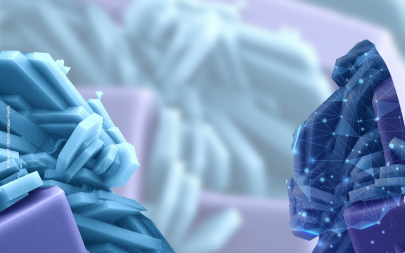National research programme Emerging materials (PEPR DIADEM)
Faced with the current challenges of energy, transport, digital technology and health, the accelerated discovery of new materials is essential. DIADEM aims to accelerate the design and market launch of more efficient and sustainable materials, using artificial intelligence in particular, thereby contributing to the competitiveness of French industries and economic development.
|
PEPR DIADEM is an ambitious programme to accelerate the development of higher-performance, sustainable materials derived from non-critical, non-toxic raw materials. Such a programme requires the establishment of integrated teams/skills centres, bringing together experimental platforms for synthesis, shaping and high-throughput characterisation, coupled with digital modelling, data mining and supervised learning tools, or more generally with adapted artificial intelligence.
PEPR DIADEM is based on the creation of a unique network of platforms, the DIADEM DISCOVERY HUB, which should accelerate the materials identification cycle by a factor of 2 to 5 (from 20 years to between 4 and 10 years). The aim of 17 targeted ‘demonstrator’ projects is to set up this network of platforms and then demonstrate its ability to accelerate the discovery of innovative materials.
The DIADEM DISCOVERY HUB brings together 4 main types of equipment:
- Combinatorial and/or high-throughput materials synthesis
- High-throughput chemical, structural and microscopic characterisation and measurement of properties of use
- Numerical simulation of materials and processes: tools including AI approaches that are easier to use, interoperable and enable automatic, high-throughput calculations
- Databases for storage, management and exploitation by AI.
Two calls for projects open to the French community, estimated at nearly 4,000 scientists, will provide funding for around thirty projects. Most of these projects will have to be based on the network of platforms, and a strong emphasis will be placed on their international character and their openness to the socio-economic world.
A call for expressions of interest to set up initial and continuing training initiatives and an international doctoral and post-doctoral programme completes the package.
For more information
- DIADEM: an exploratory Priority Research Programme and Infrastructure linking materials and AI, press release on the occasion of the inauguration of the PEPR (07/06/22)
